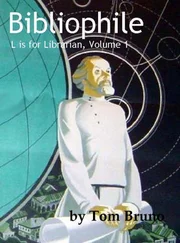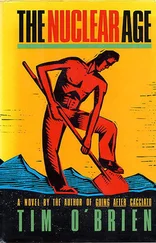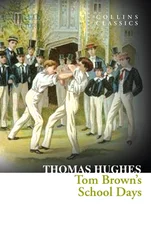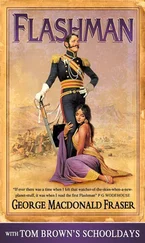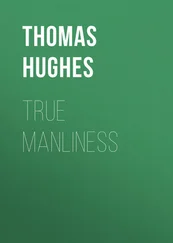Thomas Hughes - Tom Brown at Oxford
Здесь есть возможность читать онлайн «Thomas Hughes - Tom Brown at Oxford» — ознакомительный отрывок электронной книги совершенно бесплатно, а после прочтения отрывка купить полную версию. В некоторых случаях можно слушать аудио, скачать через торрент в формате fb2 и присутствует краткое содержание. Жанр: foreign_prose, foreign_language, на английском языке. Описание произведения, (предисловие) а так же отзывы посетителей доступны на портале библиотеки ЛибКат.
- Название:Tom Brown at Oxford
- Автор:
- Жанр:
- Год:неизвестен
- ISBN:нет данных
- Рейтинг книги:5 / 5. Голосов: 1
-
Избранное:Добавить в избранное
- Отзывы:
-
Ваша оценка:
- 100
- 1
- 2
- 3
- 4
- 5
Tom Brown at Oxford: краткое содержание, описание и аннотация
Предлагаем к чтению аннотацию, описание, краткое содержание или предисловие (зависит от того, что написал сам автор книги «Tom Brown at Oxford»). Если вы не нашли необходимую информацию о книге — напишите в комментариях, мы постараемся отыскать её.
Tom Brown at Oxford — читать онлайн ознакомительный отрывок
Ниже представлен текст книги, разбитый по страницам. Система сохранения места последней прочитанной страницы, позволяет с удобством читать онлайн бесплатно книгу «Tom Brown at Oxford», без необходимости каждый раз заново искать на чём Вы остановились. Поставьте закладку, и сможете в любой момент перейти на страницу, на которой закончили чтение.
Интервал:
Закладка:
"I know my father was very poor when my mother died, and I think (though he never told me so) that he had mortgaged our cottage, and was very near having to sell it at one time. The expenses of my mother's illness had been very heavy; I know a good deal of the best furniture was sold – all, indeed except a handsome arm chair and a little work table of my mother's. She used to sit in the chair, in her last illness, on our lawn, and watch the sunsets. And he sat by her, and watched her, and sometimes read the Bible to her; while I played about with a big black dog we had then, named Vincent, after my father's old captain; or with Burt, his old boatswain, who came with his wife to live with my father before I can recollect, and lives with us still. He did everything in the garden, and about the house; and in the house, too, when his wife was ill, for he can turn his hand to most anything, like most old salts. It was he who rigged up the mast and weather-cock on the lawn, and used to let me run up the old flag on Sundays, and on my father's wedding-day, and on the anniversary of his action, and of Vincent's action in the Arrow.
"After my mother's death my father sent away all the servants, for the boatswain and his wife are more like friends. I was wrong to say that no woman has loved me since my mother's death, for I believe dear old nanny loves me as if I were her own child. My father, after this, used to sit silent for hours together, doing nothing but look over the sea, but, except for that, was not much changed. After a short time he took to teaching me to read, and from that time I never was away from him for an hour, except when I was asleep, until I went out into the world.
"As I told you, my father was naturally fond of study. He had kept up the little Latin he had learnt as a boy, and had always been reading whatever he could lay his hands on; so that I couldn't have had a better tutor. They were no lessons to me, particularly the geographical ones; for there was no part of the world's sea-coast that he did not know, and could tell me what it and the people were like; and often when Burt happened to come in at such times, and heard what my father was talking about, he would give us some of his adventures and ideas of geography, which were very queer indeed.
"When I was nearly ten, a new vicar came. He was about my father's age and a widower, like him; only he had no child. Like him, too, he had no private fortune, and the living is a very poor one. He soon became very intimate with us, and made my father his churchwarden; and, after being present at some of our lessons, volunteered to teach me Greek, which, he said, it was time I should begin to learn.
"This was great relief to my father, who had bought a Greek grammar and dictionary, and a delectus, some time before; and I could see him often, dear old father, with his glass in his eye, puzzling away over them when I was playing, or reading Cook's Voyages, for it had grown to be the wish of his heart that I should be a scholar, and should go into orders. So he was going to teach me Greek himself, for there was no one in the parish except the Vicar who knew a word of anything but English – so that he could not have got me a tutor, and the thought of sending me to school had never crossed his mind, even if he could have afforded to do either. My father only sat by at Greek lessons, and took no part; but first he began to put in a word here and there, and then would repeat words and sentences himself, and look over my book while I construed, and very soon was just as regular a pupil of the Vicar's as I.
"The Vicar was for the most part very proud of his pupils, and the kindest of masters; but every now and then be used to be hard on my father, which made me furious, though he never seemed to mind it. I used to make mistakes on purpose at those times to show that I was worse than he at any rate. But this only happened after we had had a political discussion at dinner; for we dined at three, and took to our Greek afterwards, to suit the Vicar's time, who was generally a guest. My father is a Tory, of course, as you may guess, and the Vicar was a Liberal, of a very mild sort, as I have since thought; a Whig of '88,' he used to call himself. But he was in favor of the Reform Bill, which was enough for my father, who lectured him about loyalty, and opening the flood-gates to revolution; and used to call up old Burt from the kitchen, where he was smoking his pipe, and ask him what he used to think of the Radicals on board ship; and Burt's regular reply was —
"'Skulks, yer honor, regular skulks. I wouldn't give the twist of a fiddler's elbow for all the lot of 'em as ever pretended to handle a swab, or handle a topsail.'
"The Vicar always tried to argue, but, as Burt and I were the only audience, my father was always triumphant; only he took it out of us afterwards, at the Greek. Often I used to think, when they were reading history, and talking about the characters, that my father was much the more liberal of the two.
"About this time he bought a small half-decked boat of ten tons, for he and Burt agreed that I ought to learn to handle a boat, although I was not to go to sea; and when they got the Vicar in the boat on the summer evenings (for he was always ready for a sale though he was a very bad sailor), I believe they used to steer as near the wind as possible, and get into short chopping seas on purpose. But I don't think he was ever frightened, though he used sometimes to be very ill.
"And so I went on, learned all I could from my father, and the Vicar, and old Burt, till I was sixteen. By that time I had begun to think for myself; and I had made up my mind that it was time I should do something. No boy ever wanted to leave home less, I believe; but I saw that I must make a move if I was ever to be what my father wished me to be. So I spoke to the Vicar, and he quite agreed with me, and made inquiries amongst his acquaintance; and so, before I was seventeen, I was offered the place of under-master in a commercial school, about twenty miles from home. The Vicar brought the offer, and my father was very angry at first; but we talked him over, and so I took the situation.
"And I am very glad I did, although there were many drawbacks. The salary was 35L a year, and for that I had to drill all the boys in English, and arithmetic, and Latin, and to teach the Greek grammar to the five or six who paid extra to learn it. Out of the school I had always to be with them, and was responsible for the discipline. It was weary work very often, and what seemed the worst part of it to me, at the time, was the trade spirit which leavened the whole of the establishment. The master and owner of the school, who was a keen vulgar man, but always civil enough to me, thought of nothing but what would pay. And this seemed to be what filled the school. Fathers sent their boys, because the place was so practical, and nothing was taught (except as extras) which was not to be of so-called real use to the boys in the world. We had our work quite clearly laid down for us; and it was, not to put the boys in the way of getting real knowledge or understanding, or any of the things Solomon talks about, but to put them in the way of getting on.
"I spent three years at that school, and in that time I rounded myself pretty well in Latin and Greek – better, I believe, than I should have done if I had been at a first-rate school myself; and I hope I did the boys some good, and taught some of them that cunning was not the best quality to start in life with. And I was not often very unhappy, for I could always look forward to my holidays with my father.
"However, I own that I never was better pleased than one Christmas when the Vicar came over to our cottage, and brought with him a letter from the Principal of St. Ambrose College, Oxford, appointing me to a servitorship. My father was even more delighted than I, and that evening produced a bottle of old rum, which was part of his ship's stock, and had gone all through his action, and been in his cellar ever since. And we three in the parlor, and old Burt and his wife in the kitchen, finished it that night; the boatswain, I must own, taking the lion's share. The Vicar took occasion, in the course of the evening, to hint that it was only poor men who took these places at the University; and that I might find some inconvenience, and suffer some annoyance, by not being exactly in the same position as other men. But my dear old father would not hear of it; I was now going to be in amongst the very pick of English gentlemen – what could it matter whether I had money or not? That was the last thing which real gentlemen thought of. Besides, why was I to be so very poor? He should be able to allow me whatever would be necessary to make me comfortable. 'But, Jack,' he said suddenly, later in the evening, 'one meets low fellows everywhere. You have met them, I know, often at the confounded school, and will meet them again. Never you be ashamed of your poverty, my boy.' I promised readily enough, for I didn't think I could be more tried in that way than I had been already. I had lived for three years amongst people whose class notoriously measured all things by a money standard; now that was all over, I thought. It's easy making promises in the dark. The Vicar, however, would not let the matter rest; so we resolved ourselves into a Committee of Ways and Means, and my father engaged to lay before us an exact statement of his affairs next day. I went to the door with the Vicar, and he told me to come and see him in the morning.
Читать дальшеИнтервал:
Закладка:
Похожие книги на «Tom Brown at Oxford»
Представляем Вашему вниманию похожие книги на «Tom Brown at Oxford» списком для выбора. Мы отобрали схожую по названию и смыслу литературу в надежде предоставить читателям больше вариантов отыскать новые, интересные, ещё непрочитанные произведения.
Обсуждение, отзывы о книге «Tom Brown at Oxford» и просто собственные мнения читателей. Оставьте ваши комментарии, напишите, что Вы думаете о произведении, его смысле или главных героях. Укажите что конкретно понравилось, а что нет, и почему Вы так считаете.

